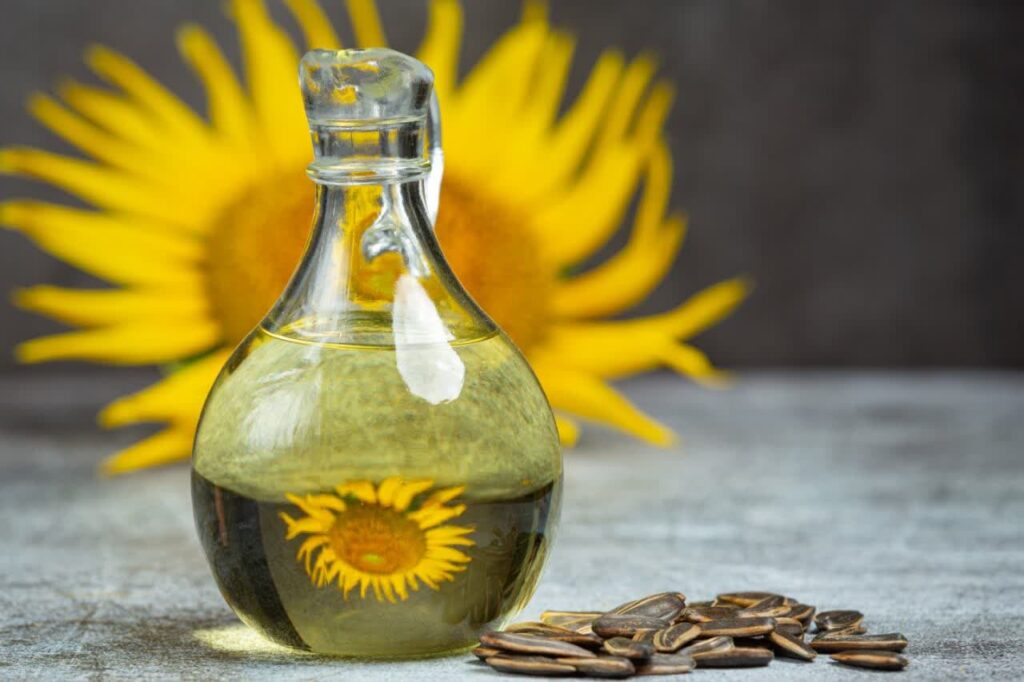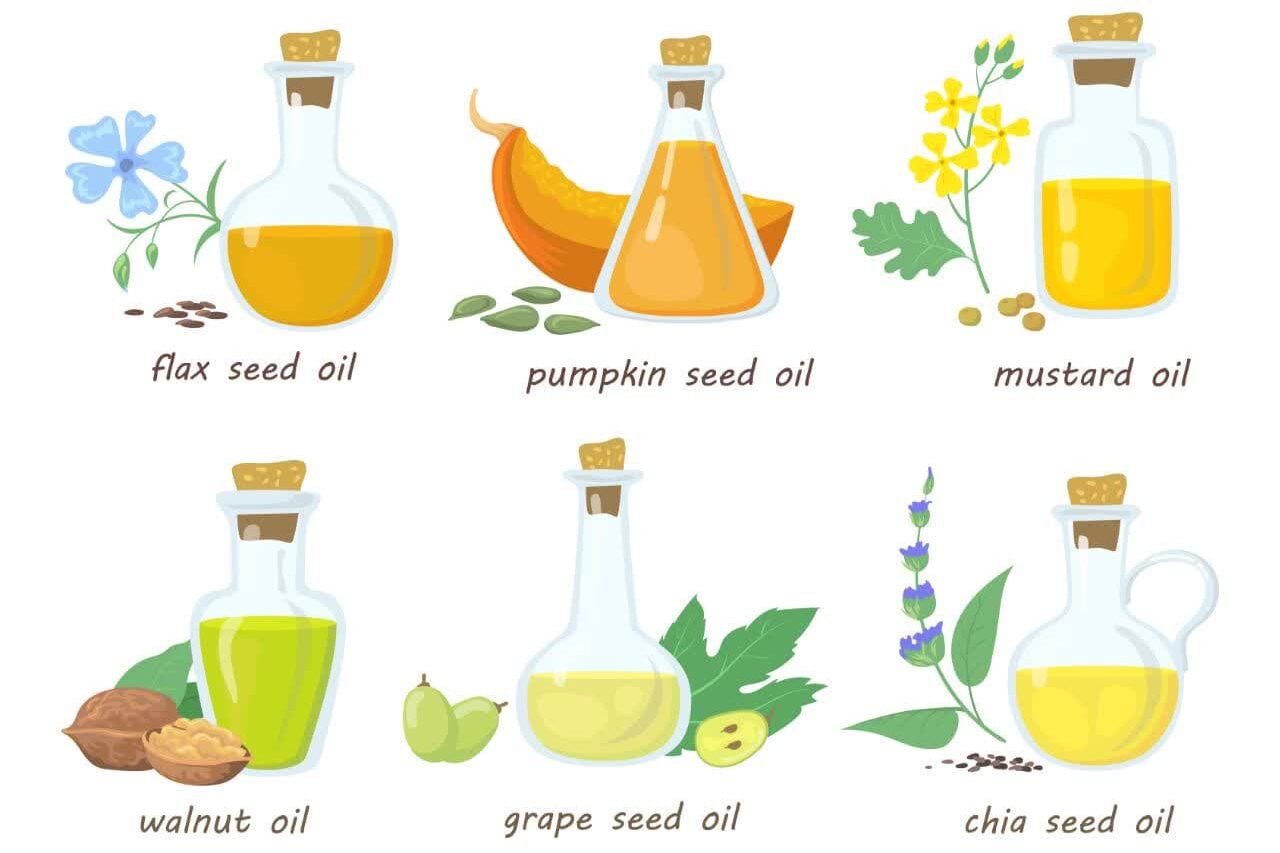Introduction:
Seed oils, also known as vegetable oils, are extracted from the seeds of various plants and have been used for centuries for culinary, cosmetic, and medicinal purposes. These oils are a natural gift from nature, providing a rich source of essential fatty acids, vitamins, and antioxidants. In this article, we will delve into the process of making oil from seeds, explore the diverse range of seed oils available, and discuss their specific uses and benefits.
The Process of Making Oil from Seeds:
The process of extracting oil from seeds involves several steps. First, the seeds are cleaned and sorted to remove any debris or impurities. Next, the seeds are crushed or ground to break them down into smaller particles. This process, known as milling or crushing, helps release the oil from the seeds’ cellular structure.
Once the seeds are crushed, they are subjected to a mechanical extraction process to separate the oil from the solid components. This can be done using various methods, including pressing, expeller pressing, or solvent extraction. Pressing involves applying pressure to the crushed seeds to squeeze out the oil, while expeller pressing uses a mechanical press to extract the oil without the use of chemicals. Solvent extraction involves using a solvent such as hexane to dissolve the oil from the seeds, followed by evaporation to remove the solvent and isolate the oil.
After extraction, the oil is typically refined to remove any impurities and improve its shelf life. This may involve processes such as degumming, neutralization, bleaching, and deodorization. The refined oil is then filtered and packaged for sale.
The Diversity of Seed Oils
Seed oils offer a diverse array of flavors, textures, and nutritional profiles, making them essential ingredients in various culinary and non-culinary applications. Among the noteworthy seed oils are coconut oil, hazelnut oil, and sunflower oil, each with its distinct characteristics and uses.
Coconut Oil:
Extracted from the meat of mature coconuts, coconut oil is celebrated for its rich tropical flavor and numerous health benefits. It contains a high proportion of medium-chain fatty acids, primarily lauric acid, which is known for its antimicrobial and anti-inflammatory properties. Coconut oil is solid at room temperature and has a high smoke point, making it suitable for cooking methods such as frying and baking. Additionally, coconut oil is a popular ingredient in skincare products due to its moisturizing properties and ability to penetrate the skin barrier, leaving it soft and hydrated.
Hazelnut Oil:
Derived from the kernels of hazelnuts, hazelnut oil boasts a delicate nutty flavor and aroma, making it a versatile ingredient in both savory and sweet dishes. Rich in monounsaturated fats, vitamin E, and antioxidants, hazelnut oil offers numerous health benefits, including cardiovascular support and skin protection. Hazelnut oil is commonly used in salad dressings, marinades, and vinaigrettes, where its subtle nuttiness adds depth and complexity to the flavor profile. It can also be drizzled over vegetables, pasta, and desserts for a finishing touch.

Sunflower Oil:
Extracted from sunflower seeds, sunflower oil is prized for its mild flavor, light texture, and high smoke point, making it suitable for various cooking applications. It is rich in vitamin E, an antioxidant that helps protect cells from damage caused by free radicals, and linoleic acid, an essential omega-6 fatty acid important for heart health. Sunflower oil is commonly used for frying, sautéing, and baking, as well as in salad dressings and marinades. Its neutral flavor allows the other ingredients in a dish to shine while providing a subtle nuttiness and depth of flavor.
While coconut, hazelnut, and sunflower oils offer unique flavors and health benefits, they represent just a fraction of the vast diversity of seed oils available. Other popular seed oils include olive oil, sesame oil, flaxseed oil, and pumpkin seed oil, each with its distinct characteristics and culinary uses. Whether used for cooking, skincare, or medicinal purposes, seed oils play an integral role in enhancing flavor, promoting health, and nourishing the body inside and out.

Specific Uses of Seed Oils
Culinary Applications:
Seed oils are widely used in cooking due to their diverse flavors, high smoke points, and nutritional benefits. Olive oil, for example, is a staple in Mediterranean cuisine and is used for sautéing, frying, salad dressings, and marinades. Coconut oil is another versatile seed oil commonly used in cooking, baking, and frying, especially in tropical cuisines. Sunflower oil, with its neutral flavor and high smoke point, is often used for frying and deep-frying, while sesame oil adds a distinct nutty flavor to Asian dishes. Seed oils can also be drizzled over dishes as a finishing touch or used as a base for homemade sauces and condiments.
Skincare and Haircare:
Many seed oils are prized for their moisturizing, nourishing, and protective properties, making them popular ingredients in skincare and haircare products. Jojoba oil, extracted from the seeds of the jojoba plant, closely resembles the skin’s natural sebum and is often used as a facial moisturizer, makeup remover, and hair conditioner. Argan oil, derived from the kernels of the argan tree, is rich in antioxidants and fatty acids and is used to hydrate and soften skin and hair. Grapeseed oil, extracted from the seeds of grapes, is lightweight and non-comedogenic, making it suitable for all skin types and often used in massage oils, serums, and lotions.
Medicinal and Therapeutic Uses:
Certain seed oils have been traditionally used for their medicinal properties and therapeutic benefits. Evening primrose oil, for example, is rich in gamma-linolenic acid (GLA), an omega-6 fatty acid with anti-inflammatory properties that may help alleviate symptoms of conditions such as eczema and rheumatoid arthritis. Flaxseed oil, derived from the seeds of the flax plant, is high in alpha-linolenic acid (ALA), an omega-3 fatty acid that supports heart health and may reduce inflammation. Pumpkin seed oil is rich in antioxidants, vitamins, and minerals and is believed to promote prostate and urinary health in men. Additionally, seed oils like black seed oil and hemp seed oil are gaining popularity for their potential health benefits, including immune support, skin healing, and mood regulation.
In conclusion, seed oils are a valuable and versatile gift from nature, offering a wide range of culinary, cosmetic, and medicinal benefits. Whether used for cooking, skincare, or industrial applications, seed oils play an essential role in our daily lives and contribute to our health and well-being.

